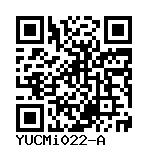hiPSC-KCNH2_G53S
YUCMi022-A
General
Cell Line |
|
| hPSCreg name | YUCMi022-A |
| Cite as: | YUCMi022-A (RRID:CVCL_E5EA) |
| Alternative name(s) |
hiPSC-KCNH2_G53S
|
| Cell line type | Human induced pluripotent stem cell (hiPSC) |
| Similar lines |
FAMRCi006-A (LMNA T3) Donor's gene variants: LMNA Donor diseases: Emery-Dreifuss Muscular Dystrophy Dilated Cardiomyopathy FAMRCi006-B (LMNA T4) Donor's gene variants: LMNA Donor diseases: Emery-Dreifuss Muscular Dystrophy Dilated Cardiomyopathy SCVIi073-A (SCVIi574C2) Donor's gene variants: titin, BAG cochaperone 3, BAG cochaperone 3 Donor diseases: Dilated Cardiomyopathy SCVIi074-A (SCVIi599C1) Donor's gene variants: BAG cochaperone 3 Donor diseases: Hypertrophic Cardiomyopathy |
| Last update | 29th January 2024 |
| User feedback | |
Provider |
|
| Generator | Yonsei University College of Medicine (YUCM) |
External Databases |
|
| BioSamples | SAMEA115112794 |
| Cellosaurus | CVCL_E5EA |
General Information |
|
| Publications | |
| * Is the cell line readily obtainable for third parties? |
No |
Donor Information
General Donor Information |
|
| Sex | female |
Phenotype and Disease related information (Donor) |
|
| Diseases | A disease was diagnosed.
|
External Databases (Donor) |
|
| BioSamples | SAMEA115112793 |
Ethics
| Has informed consent been obtained from the donor of the embryo/tissue from which the pluripotent stem cells have been derived? | Yes |
| Was the consent voluntarily given? | Yes |
| Has the donor been informed that participation will not directly influence their personal treatment? | Yes |
| Can you provide us with a copy of the Donor Information Sheet provided to the donor? | No |
| Do you (Depositor/Provider) hold the original Donor Consent Form? | Yes |
| Please indicate whether the data associated with the donated material has been pseudonymised or anonymised. | pseudonymised |
| Does consent explicitly allow the derivation of pluripotent stem cells? | Yes |
| Does consent prevent CELLS DERIVED FROM THE DONATED BIOSAMPLE from being made available to researchers anywhere in the world? | No |
| How may genetic information associated with the cell line be accessed? | Open Access |
| Will the donor expect to receive financial benefit, beyond reasonable expenses, in return for donating the biosample? | No |
| Has a favourable opinion been obtained from a research ethics committee, or other ethics review panel, in relation to the Research Protocol including the consent provisions? | Yes |
| Name of accrediting authority involved? | Yonsei Univertisy |
| Approval number | 4-2021-1626 |
| For generation of the cell line, who was the supplier of any recombined DNA vectors or commercial kits used? |
hIPSC Derivation
General |
|
| Source cell type |
A peripheral blood cell with a single nucleus. This category includes lymphocytes and monocytes.
Synonyms
|
Reprogramming method |
|
| Vector type | Integrating |
| Vector | Virus (sendai virus) |
| Is the used vector excisable? |
Unknown |
| Absence of reprogramming vector(s)? |
Yes |
| Reprogramming vectors silenced? |
Yes |
| Methods used |
RT-PCR
|
Vector free reprogramming |
|
Other |
|
| Derived under xeno-free conditions |
Unknown |
| Derived under GMP? |
Unknown |
| Available as clinical grade? |
Unknown |
Culture Conditions
| Medium |
mTeSR™ 1
|
Characterisation
Analysis of Undifferentiated Cells
| Marker | Expressed | Immunostaining | RT-PCR | Flow Cytometry | Enzymatic Assay | Expression Profiles |
| Alkaline Phosphatase |
Yes |
|||||
| NANOG |
Yes |
Morphology pictures
Differentiation Potency
Microbiology / Virus Screening |
|
| Mycoplasma | Negative |
Genotyping
Karyotyping (Cell Line) |
|
| Has the cell line karyotype been analysed? |
Yes
|
Other Genotyping (Cell Line) |
|


Login to share your feedback, experiences or results with the research community.